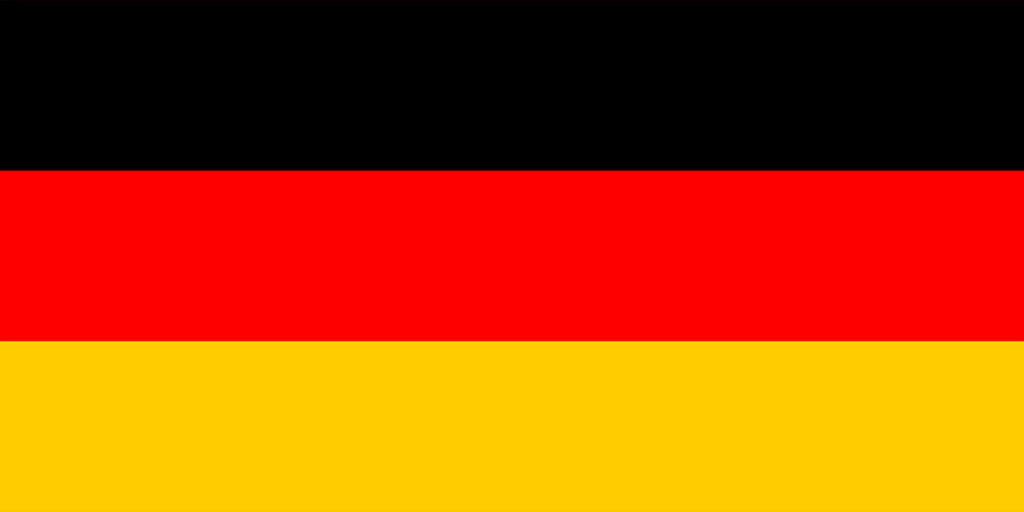
Germany Gambling Regulations
Table of contents
Gambling Regulations for Online Casinos in Germany
As with many European countries, Germany has kind of a love-hate relationship with gambling. While most Germans like to play, both in-person and online, the federal government seems to have no interest in sanctioning the activity.
However, while online gambling has been banned in the country since 2008, recent changes could open Germany back up to gambling. However, as it stands in 2021, the future of gaming, either online or in-person, is in flux. Here is everything you need to know about gambling regulations in Germany.
A Brief History of Online Gambling in Germany
Germany has something of a checkered past, and its love affair with gambling has had similar ups and downs. Oddly enough, the country has two of the oldest casinos in the world. The first is Casino Bad Ems (bad meaning bath or spa in German), which was built in 1720. While the current structure is nothing like the original, the casino still operates to this day.
The second casino is Wiesbaden, which was built in 1810. Throughout the 19th century, gambling was largely unregulated, and casinos and betting houses were popular throughout the cities and countryside. Then, temporarily at least, the fun came to an end in 1872 when the government outlawed all betting. The prominent and luxurious casinos would sit empty for more than 100 years until the Nazis came to power.
By the 1930s, the Nazi party wanted to help unify Germany by reopening casinos and gambling halls. However, thanks to World War 2, the laws regarding bets would shift dramatically after the war ended. Since the country was split into East and West Germany, residents on the western side had access to gambling, while those on the east didn't. Even though individuals could travel back and forth between sides, most casinos required proof of residency to gamble.
By 1995, well after the fall of the Berlin Wall and a reunified Germany, the government tried to seize control of all gaming within the country. Since the state was going to run a monopoly on casinos, the European Union intervened to allow private enterprises to get a piece of the betting pie. While casinos were released from the government's grasp, sports betting remained a state-run institution. Today, many of the sportsbooks are still owned by state and federal governments.
Since online gambling began in 1994 when Antigua and Barbuda started issuing online casino licenses, German casino operators quickly followed suit. While the government regulated live gaming, it didn't do much for online betting.
That all changed in 2008 with the passage of the Interstate Treaty on Gambling. This law effectively banned online casinos, but in-person gaming was still legal. Oddly enough, the Treaty didn't address sports betting, meaning that online bets on horse racing and other sports have technically been legal in the country. Since this is one of the few unregulated markets, sports betting is more prominent in Germany than in other European countries.
There are 16 states in Germany, and all of them originally signed the Treaty. However, one state, Schleswig-Holstein, opted out in 2012 and began issuing its own online casino licenses. Around 30 operators flocked to the state and opened up shop, eager to capture the market. Unfortunately, that ended in 2013 when a new state governor came in and reversed the decision. That said, since the gaming licenses were valid for six years, these online casinos were allowed to stay in business until 2018.
Here is a rundown of important dates in the history of German gambling regulations:
- 1872 – All betting is criminalized within the country.
- 1933 – The Nazi party allows gambling of all forms.
- 1945-1989 – Gambling is mostly legal in West Germany, although players need proof of residence.
- 1989 – The Berlin Wall comes down, opening gaming up to the eastern half of the country.
- 1995 – The federal government removes restrictions on gambling and tries to monopolize the entire industry.
- 2008 – The Interstate Treaty on Gambling was enacted, banning all online casinos in the country. Sports betting is still technically legal, though, since it wasn't explicitly prohibited.
- 2020 – An updated Interstate Treaty is passed, which will allow online gaming in July 2021. However, there have been some appeals, so it's unclear what will happen when July 1st rolls around.
Is Online Gambling Legal in Germany?
Germany is currently known as a “gray” market for online casinos and sports betting. Operating an online casino is strictly illegal, but sports betting is not. That is not to say that sports betting is entirely legal, just that the law is unclear about it.
That said, German citizens can still play at online casinos as long as they are based outside the country. This distinction is why Germany is a gray market. If all gambling were banned, even on the individual level, it would be a black market. Countries like the United Kingdom, where online gambling is fully legal and regulated, are considered white markets.
Technically speaking, the 2008 law does prohibit players from making wagers online, but it doesn't seem like anyone has been charged, arrested, or imprisoned for doing so. However, if players get cheated or defrauded at an online casino, they have no recourse to get that money back, so there is some additional risk involved.
As we mentioned, significant changes happened in 2020. The federal government decided that it was better to regulate online gaming than to have an extensive black market industry. Updates to the Interstate Treaty on Gambling were passed, with the law going into effect in July 2021.
While the government seems open to the idea of online casinos, the process for getting approved and licensed is relatively complicated. Since Germany doesn't have its own gaming commission, licenses have to be issued by the federal parliament and ratified by all 16 states and the European Commission. Right now, the Regional Council of Darmstadt is in charge of licensing and oversight. However, the country will likely develop a new gambling authority in the near future.
Despite all these hurdles, online casino operators have already filed for permits, with the hope of being able to go live at some point in July 2021.
The new law has some other unique stipulations, including:
- No Table Games (Except Poker) – For now, all table games like blackjack, roulette, and craps will still be illegal. However, online casinos can offer poker tables since players are not betting against the house. After the transition period, individual states can determine whether they want to open online table games.
- Max Spin Bets – All slot machine bets will be capped at EUR1 per spin. Slots are also not allowed to have jackpots or auto-play functions, at least not yet.
- Marketing Restrictions – It seems that Germany wants to avoid becoming like the U.K., where online gambling ads are plentiful and ubiquitous. The new law states that casino advertisements are banned from 6 a.m. to 9 p.m. This rule is being challenged, so it's unclear whether it will hold up once the changes take effect.
- Sports Betting – Sports betting will now be fully legal and regulated under the new Treaty, including live betting (i.e., placing wagers while the game is still in play).
European Regulatory Authorities for Online Casinos Germany
As we mentioned, since online gambling is not legal in Germany, it does not have its own regulatory commission. However, many German residents like to play at online casinos that are based outside the country. While that status will likely change with the new law, there are several gambling authorities that regulate online betting in Europe. If players want to feel safe and confident with their money, they can bet at sites controlled by one of these authorities. Here is a rundown of the top-rated commissions in the region:
European Gaming and Betting Association (EGBA)
Founded in 2007, the EGBA oversees online gambling throughout the European Union. That said, the EGBA does not issue licenses or have any authority within a specific country. Instead, it acts as an overseer of different regulatory commissions and online gaming operators. The Association helps determine best practices, offers guidance and insight, and ensures that all of its members uphold their individual countries' license restrictions.
Basically, if an online casino carries the EGBA badge, you know that it is legit.
United Kingdom Gambling Commission (UKGC)
Since the U.K. is a white market, online casino operators and sportsbooks enjoy a fully regulated industry. The goal of the UKGC is to protect both casinos and players to ensure that all games are safe, lawful, and free from criminal or exploitative behavior. The Commission was created as a direct result of the Gambling Act of 2005. Since then, the UKGC has become one of the most prestigious authorities for both the U.K. and Europe.
Malta Gaming Authority (MGA)
Although Malta used to be a British colony, it secured its independence in 1964 and is now a sovereign nation. The Malta Gaming Authority was established in 2001 and issues four kinds of gambling licenses, including:
- Class 1 – Casino table games and other games of chance.
- Class 2 – Fixed-odds betting and pool betting (i.e., horse racing).
- Class 3 – Peer-to-Peer betting (i.e., poker).
- Class 4 – Controlled skill games.
Malta does entice casino operators with relatively low tax rates, but license approval is much harder to get when compared to other gaming commissions in the region. So, any online casino with an MGA badge is in a higher class.
Gibraltar Regulatory Authority (GRA)
Technically speaking, Gibraltar is an independent nation like Malta. However, it's classified as a British Crown Dependency, meaning that it gets to set its own laws but still falls under some U.K. jurisdiction. For example, the Gambling Act of 2005 applied to Gibraltar as well as the rest of the United Kingdom. This relationship also means that Gibraltar-based casinos are open to U.K. residents, although a recent 2014 law means that those casinos have to pay an extra 15-percent tax on all earnings.
Gibraltar is another haven for online casino operators since it only issues a one-percent tax on all businesses. Even though the country is small, it's home to 50 different companies.
Gambling Supervision Commission (Isle of Man)
Like Gibraltar, the Isle of Man is a British Dependency, so it gets to set its own laws regarding online gambling. While the commission was formed in 1962, the island parliament passed the Online Gambling Regulation Act in 2001, which expanded the commission's authority to website operators as well.
Gambling Addiction Resources in Germany
Even though online gaming is illegal (for now), casinos and in-person betting abound within the country. Those who struggle with gambling addiction can seek help from one of these resources:
- Clinical Treatment – Several hospitals and behavioral centers in Germany specialize in gambling addiction. For example, the Klinikum Stuttgart is one of the largest hospitals in the country.
- Gamblers Anonymous – This organization spans the globe and hosts meetings and group therapy in most European countries, including Germany.
- Gluecksspielsucht Problem Gambling Hotline – This is one of a couple of different helplines available for gamblers. The number is 0800 0776611. You can also visit their website for more information on how to tell if you have a gambling problem.
- European Casino Association: The EGA provides information and resources for most EU member countries. You can check out the German helplines and websites here. Gamblers can also participate in self-exclusion programs designed to help them avoid gambling online altogether.







